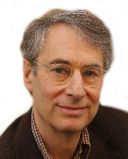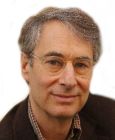Media
Intern for the Flying Wallendas
Osborn Elliott and the Glory Days of Newsweek
Posted October 10, 2008

The death of Osborn Elliott last month has cast my thoughts back to the summer of 1969, when I worked for Newsweek magazine. Oz was Editor then, one of the "Flying Wallendas," the publishing team who helped the magazine rise in influence to and past the level of Time. Oz's fingerprints were on every article. I was a summer intern. Oz kept track of staff down to that level; he called me into his office when I had done well.
Newsweek was at the forefront of the liberal revolution, civil rights in particular. Vernon Jordan said as much when he spoke at Oz's funeral. The summer I applied to work, after my junior year at college, Newsweek chose to make offers only to black undergraduates. They were sent to the bureaus to learn reporting. A younger student I had trained for the college paper went to Detroit, and I was out in the cold.
At the last minute, the magazine discovered it had a few more dollars in the budget. Hal Bruno, who managed the program, went back to the application file and hired a few college editors as writing interns. We showed up at the offices on Madison Avenue. (Later, when I wrote an article on sunscreens, my father told my German-born grandfather that I had a piece in "Medicine." "Medison?" my grandfather said, in an annoyed tone. "I know Newsweek's on Medison. Medison and fiftieth.") There were perhaps ten of us. I was the only one who published an article all summer. I wrote sixteen.
My method was taking on extra work. Ed Klein, who headed the foreign desk, had me research a piece about building construction — perhaps it concerned the Cathedral — in Brasilia, the newish capital of Brazil. I stayed late, wrapped up the writing in a day, threw the typescript on Klein's desk, and said, "You guys never run articles on Latin America. Give me something real." He tossed me an assignment on anti-Semitic incidents in Orléans, France, and I was on my way.
Klein passed me to (the late) Edwin Diamond, who mentored me for the rest of the summer. Ed (Diamond) ran half of the "back of the book," which included the most-read page of the magazine, "Where Are They Now?" which actually ran at the very front. His other b-o-t-b sections included science and medicine. This was before the era of the science or medicine writer. I was a history and literature major, but I was unafraid of physics and chemistry, so I spent some of my time on the technical beat.
I bonded with Ed over opera. (Bruno favored old-timey country & western music.) Much of the day, Ed was a hypomanic manager. He would listen to the radio, talk on the phone, and mark up a manuscript at the same time, while having his shoes shined - and with his free hand, he would be making gestures meant to indicate what story I was supposed to work on next. Then a beloved aria would come on, and Ed would shut the blinds, douse the lights, and invite me to listen along. It helped that two years back I had joined a learn-about-opera group conducted by a dean in the freshman yard.
My grand moment came the week of the moon shot. The Russians had sent up an unmanned missile, and the question was whether it would land on the moon, in competition with the US manned mission. I called on Andrew Fraknoi, a close college friend who was an astronomy major. Andy put me in touch with experts around the country. We at Newsweek were rushing to "beat Time," aiming to get an issue on the stands as soon as the first photos came down from the lunar base. Like many on the staff, that week I was put up at the Waldorf Astoria - the hotel had tiny closet-like rooms for us, no luxury - so that I could work late and stay nearby round the clock. As we went to press, the question was which conclusion to run about the USSR: "At week's end, while a few experts believed X, most predicted Y," where X and Y were the Russians hitting the moon or flying past. I made the call, and I got it right.
I had two other articles in that same issue. One may have been on the new SPF ratings. The other was a "Where" on space debris, the many earlier satellites still in orbit. The next issue of N/W, the in-house organ, showed me in a bow tie and seersucker suit, leaning over a newsroom desk, hero for a day.
But mostly Newsweek was about politics. The week in July when Ted Kennedy went off the Dyke Bridge in Chappaquiddick, Ed told me to find the whereabouts of the classmate who had taken Teddy's Spanish test for him at Harvard. Sure, sure, I said. I knew the piece would never run. In the end, I think I did a "Where" on Althea Gibson, or perhaps fallout shelters, which were being used as mushroom farms. In one piece, I called the disturbances outside the prior year's Democratic convention a "police riot" and got away with it, since the Walker Report had made the label official. As I say, we had a (proud) liberal agenda.
If there was a downside to all this, it was that Newsweek was still a boy's club. My fact-checkers were young women just out of college; they should have been doing the writing. The next year Newsweek entered into a consent decree, which meant that in hiring the magazine had to favor women over men. Most of the fact-checkers became writers. The one who worked most closely with me, Trish (readers will recall her last name) became a local television anchor in New York City in the 1970s.
Anyway: Ed Diamond helped make a writer of me. "Only six ways to start a story, Kramer." Then he'd cross out a poetic paragraph and scrawl, "Tan is beautiful. It can also be dangerous." The style was homogenized, and at the same time, standards were high. Though we did not know it, were closer to "The Front Page" than to what would come next. Ed was slated to move on to a top post at the paper - I think editor, as Oz moved out - and was sent to Russia (he spoke the language) and perhaps other bureaus, to meet the foreign staff. In his absence, the junior editors banded together and threatened to quit if "that madman" were put over them. By the time Ed returned, he was out. I was immensely grateful to him; we stayed in touch for years. For some time, Newsweek kept me on tap as a stringer, but because of the consent decree and the ousting of my "rabbi," it was clear that I would not join the staff or even enjoy a second internship (I'd hoped for foreign reporting) any time soon.
Later, quite by chance, I became a friend and colleague to one of Oz Elliott's daughters, so I saw him now and again. He did not remember me from the glory days. But I remembered him. What a fine lesson he had taught, about making the least member of the team feel valued.
Last week, I attended the memorial service for Oz, in Stonington, Connecticut. He was an extraordinary man, and in many more ways than I had known. Readers can learn about him and his career, here and here and here and here.




